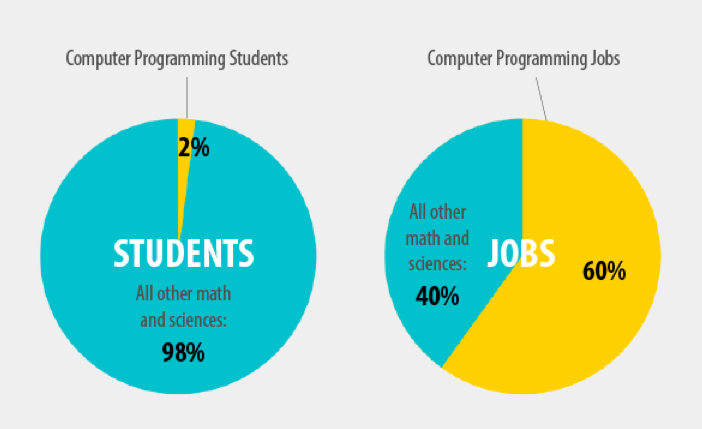When I was fresh out of college — before I spent my days poring over countless SEC filings and earnings transcripts — I wanted to do some basic good for the world. I was young, optimistic, and maybe a bit naive at the time.
Following graduation, I made the decision to leave the cushy confines of my hometown in middle-class Long Island to become a STEM teacher in Baltimore City — one of the most notoriously rough school districts in the United States.
I entered into a residency program that allowed me to begin teaching on my own almost immediately. Still wet behind the ears, I quickly found myself taking on one of the most challenging classroom environments in the country, right in the heart of Baltimore’s Westside.
I remember being told by an administrator at one point, “Don’t worry, this isn’t going to be like The Wire,” which, while deceptive, was technically not a lie. As it turns out, these schools can be much worse.
Aside from the ever-expanding cockroach population, a lack of classroom doors, and the simple fact that my school was completely surrounded by boarded-up buildings, I noticed one glaring problem with American education during my brief teaching career: Students aren’t being taught skills relevant to the jobs that will be available to them in the future.
America’s Greatest Investment
When someone asks me what the most important investment they can make is, the answer has always been what I call forward-looking education.
For financial investment purposes, this means learning everything you possibly can about emerging industries and the companies that make them up. For future job seekers, it means learning the skills these industries will inevitably demand.
Right now, this unfortunately isn’t something the American education system is doing, and the effects could end up being economically devastating, both for current and future generations.
The Huffington Post recently highlighted this exact issue, pointing out that 90% of public schools in the U.S. aren’t teaching any form of computer programming whatsoever.
Further, fewer students now engage in this field than 10 years ago, and only nine states recognize computer science as a math or science.
The economic result of this level of inaction is already apparent. The “skill-gap” so many employers have been pointing out recently is real. According to Manpower Group’s “Talent Shortage Survey,” 39% of U.S. employers reported difficulty filling jobs due to lack of available talent last year.
The reason for this growing skill-gap is pretty obvious: There’s a striking disconnection between educational direction and available jobs. The figure below should help make things a little more clear:

Credit: Huffington Post
Now, I don’t have to explain exactly why this could end up being detrimental on an economic level. Even if you’re not a future job seeker (or raising one), you know how important a qualified workforce is to the economy long term.
The reality is that if we do not begin educating students with the future job market in mind, unemployment is bound to become a major problem — not only for job seekers but for American companies as well. After all, skilled employees are every company’s greatest resource.
During his 2013 State of the Union, President Barack Obama said, “To grow our middle class, our citizens must have access to the education and training that today’s jobs require.”
He was wrong. To grow our middle class, our citizens actually need access to the education and training that tomorrow’s jobs require.
We have you covered! Sign up for Tech Investing Daily’s FREE newsletter, Wealth Daily, today and gain first access to actionable stock market commentary, regular IPO updates, and weekly technical analysis. Plus, if you sign up right now, we’ll immediately send you our free report: “The Five Most Disruptive Trends In Tech.”
The Jobs of Tomorrow
In a recent blog post, LinkedIn released its list of the 25 Hottest Skills of 2014. One quick look at the top 10, and it’s clear how incredibly important technology education has become:

Yet despite the clear and growing importance of these skills, American public schools and students are stuck wasting precious time memorizing the periodic table, learning cursive, and performing long division, as if technology hasn’t already made these skills completely obsolete.
Don’t get me wrong: I enjoyed Huckleberry Finn just as much as anyone else. But does my ability to point out its theme and climax really make me a particularly productive citizen in today’s economy? Of course not.
The cold, hard truth is that we’re preparing younger generations for a world that simply doesn’t exist anymore (or won’t exist in the near future). Not only are the required skills becoming increasingly complex, but automation and robotics are taking over low-skill jobs at a pace once thought unimaginable.
According to research by Carl Benedikt Frey and Michael Osborne at Oxford University, nearly 47% of total U.S. employment is considered “high risk,” meaning those jobs are likely to be automated within the next 10 to 20 years.
Some of these jobs include mathematical technicians, tax accountants, drivers, cashiers, and even lawyers.
Of course, new jobs will certainly be created in the process, but we won’t be able to satisfy the demand if our workforce isn’t properly trained. It helps when local governments follow through with initiatives, such as Chicago’s mandatory coding curriculum, but ultimately this should be a mandate coming from the federal level.
If you’re at all interested in advocating computer science education, be sure to check out code.org for information (you don’t need to be a computer scientist to make a difference).
More importantly, though, if you have a future job seeker in your family, it might just be worth nudging them in the right direction. After all, it could easily be the single best investment they ever make.
Until next time,
![]()
Jason Stutman
